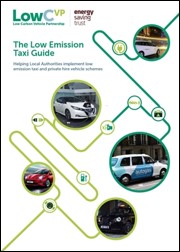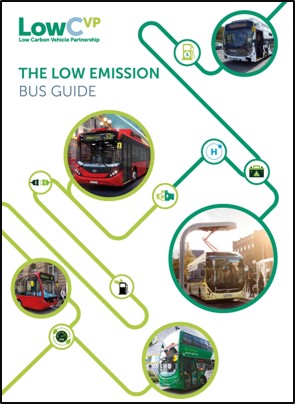LowCVP 'blog' for Green GB Week: Mobility in a modern world
Thu 18 October 2018
View all news

Getting around has never been so easy, or so difficult, depending on your perspective. If you’re a bit of a techno-phobe you’re likely stuck with the traditional choices; your own car or bike (if you have them), the bus, train, or – in cities – the tube or tram. But the growing number of rules and restrictions around using your own car and the general increase in congestion means that you’re likely to find getting around more complex, at least in cities. Neil Wallis, Head of Comms, 'blog' for Green GB Week...
But if you’re someone who embraces technology, your mobility choices have increased; from car and bike sharing to app-based providers like Uber, facilitated by digital providers of the optimal multi-modal travel choice for your journey.
Putting any ethical questions about this technological ‘apartheid’ aside, it’s pretty clear that this is the way our future mobility choices will be made. Those choices are also, increasingly, being tied in with other considerations like health and exercise, linked with the obesity epidemic for example.
These changes in behaviour, inspired by the digital revolution, mean there are some rapid – arguably, revolutionary – changes under way. App-based technologies have produced an explosion in the number of private hire vehicles, for example. The number of PHV driver licences wasn’t far short of doubling between 2013 and 2017; one reason why the LowCVP was encouraged to produce its Low Emission Taxi Guide which seeks to help PHV – and regular taxi – drivers make the best, low emission vehicle choices. The guide complements our bus guide and extensive work on passenger cars and micro vehicles highlighting the wide range of technologies needed to deliver a clean Green GB mobility revolution and, of course, the UK companies supplying them.

Mobility demand is growing everywhere, which currently means worsening congestion and, generally, slower journeys. One potential improvement is to look at the opportunities for smaller – micro – vehicles. The LowCVP and a wide range of stakeholders have been looking at the UK potential for adopting and producing micro (L-Category) vehicles.
A report will be out soon, but it’s pretty clear that there is potential in this area for cutting emissions as well as congestion, and a range of products with significant innovation and export possibilities. If this sector were to replicate the approach of our bus industry in embracing low emissions and lead the world in adoption, it too could reap the rewards from cleaner growth.

There are so many more examples about how technology change is, and will, impact on future mobility. Digital connectivity – as well as the prospect of increasingly automated vehicles - provides a plethora of exciting new opportunities. There are a dazzling array of possibilities for innovators, but they – and those responsible for the regulatory and policy environment in which they operate – must be fully mindful of the imperatives to cut carbon and polluting emissions, however we’ll be moving around in future.

Related Links
< Back to news list